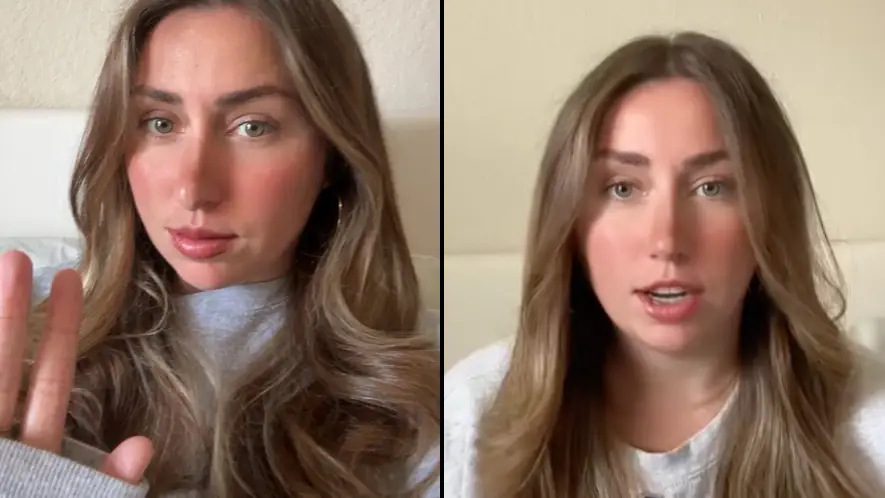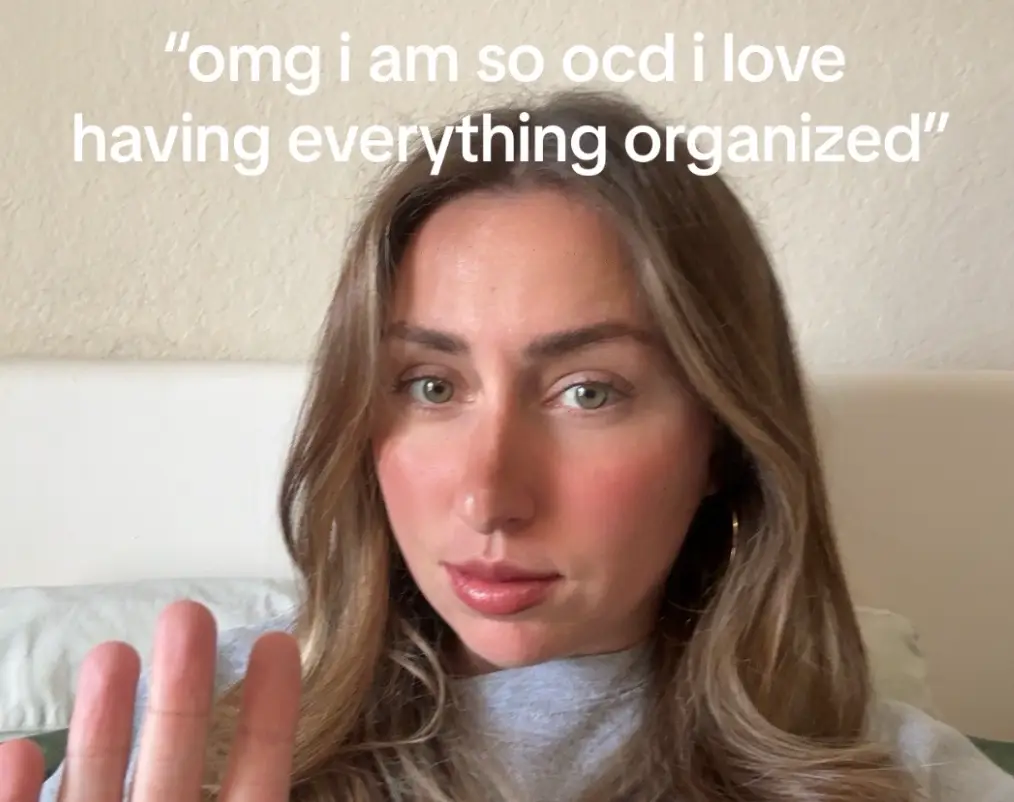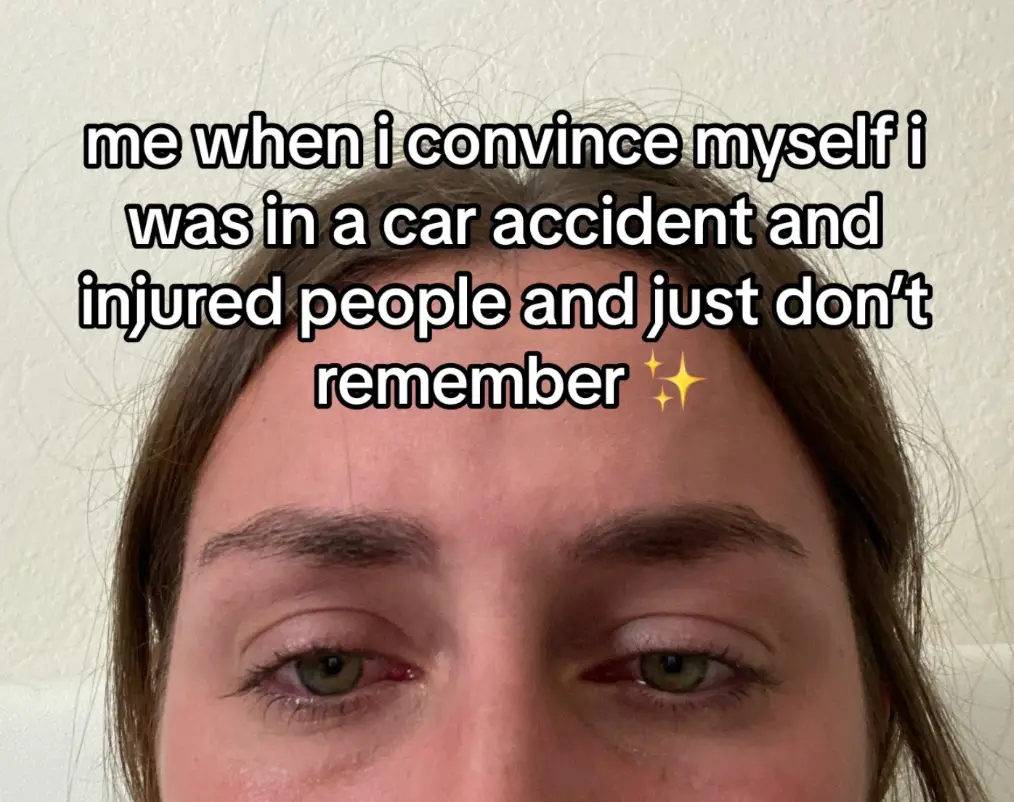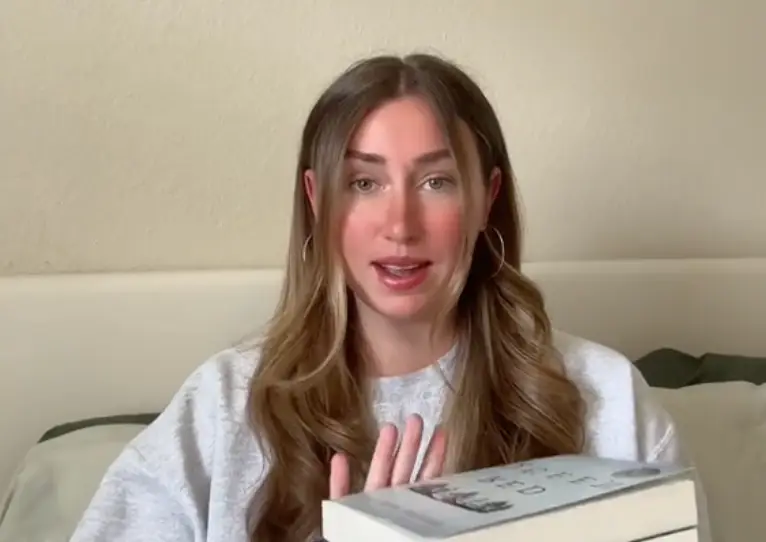
A woman with Obsessive-Compulsive Disorder (OCD) has revealed what it's actually like to have the condition.
Society's understanding of mental health has increased ten-fold in the past decade or so. However, the complexities surrounding OCD can often be misunderstood, and you've almost definitely heard someone call themselves 'OCD' for being organised or particular about something - but it's a lot more complicated than that.

Kylie Berko, known on TikTok as @kylieisreading, recently made a viral video giving viewers an insight into what really happens in her head as someone with the disorder.
Advert
She is one of the two and a half million US adults that lives with OCD and deals with its symptoms everyday, with people casually calling themselves 'OCD' accused by the creator of creating the myth that it is focused on quirks or cleanliness.
The disorder being a problem on social media is one thing, but it can also hinder accurate diagnosis and later treatment, which Kylie opens up on in an interview with Newsweek.
"Growing up I always knew my mind worked differently than my friends,
"Missing out on sleepovers, counting buildings around me, the checking and rechecking of appliances in my home, and the certain distressing thoughts my mind seemed to never let escape.
"Luckily, I was diagnosed at a young age and was able to form a deeper understanding of my obsessive thoughts and the compulsions that come from them," she explained.

Luckily, Kylie got support early on to cope with the disorder, as on average, a diagnosis and proper treatment can take 14 to 17 years, according to Treat My OCD.
In the viral clip made by Kylie, different to the book content she usually makes on her account, the 25-year-old focuses on the misconceptions around OCD, posting the expression 'OMG I am so OCD I love having everything organised', before changing tone and revealing how it really is to live with the condition.
She reveals that she has difficulties with intrusive thoughts and compulsive behaviours, with examples in the video including taking photos of her medication to make sure she doesn't overdose, thinking that she has caused car accidents without knowing, needing to check everything multiple times or saying it out loud, or even checking her pupils for stroke symptoms.
Kylie found comfort in reading, sharing book recommendations with other readers, which eventually inspired her to write her first novel.

She has since opened up on her life with OCD on a wider-scale, which has helped others share their struggles online too, as the Booktok content creator added: "I decided to show others online some of my obsessive thoughts, like 'me when I have to refill my water bottle multiple times because what if I put chemicals in it,
"I wanted to let people know that if they have similar obsessive thoughts or compulsions, they are not alone and that they do not define us," she concluded.
Sarah Boss, the clinical director of The Balance Rehab Clinic, explained what OCD is to Newsweek: "In a nutshell, OCD is persistent unwanted thoughts or behaviours that the sufferer feels compelled to repeat.
"The compulsion is the attempt to ignore or suppress the thoughts, urges, or images or to neutralize them with another thought or action."
She also highlighted that it is different from person to person, with common behaviours being checking, counting, cleaning, or specific rituals.
If you're experiencing distressing thoughts and feelings, the Campaign Against Living Miserably (CALM) is there to support you. They're open from 5pm–midnight, 365 days a year. Their national number is 0800 58 58 58 and they also have a webchat service if you're not comfortable talking on the phone.
Topics: Mental Health, TikTok, Viral, Community